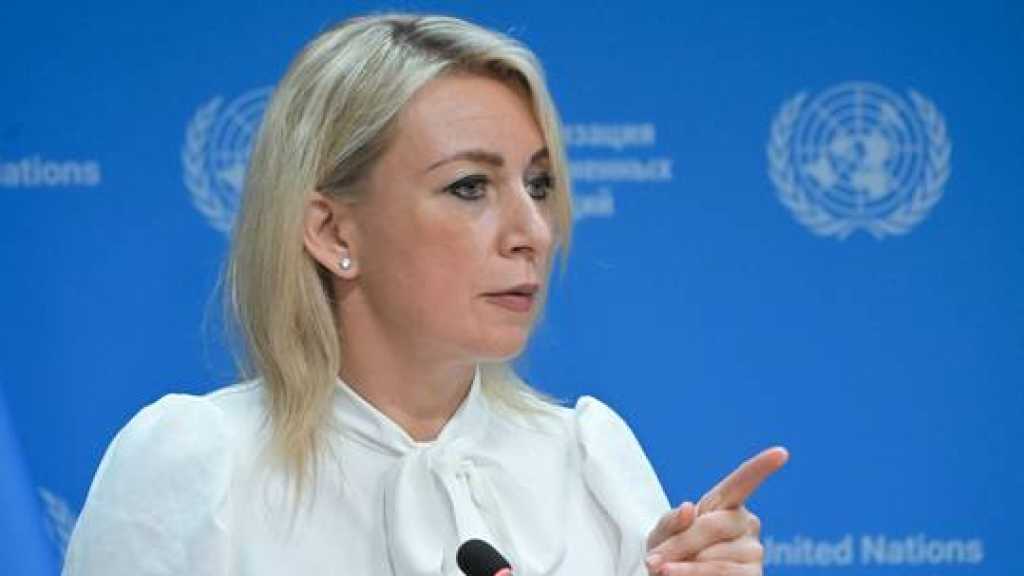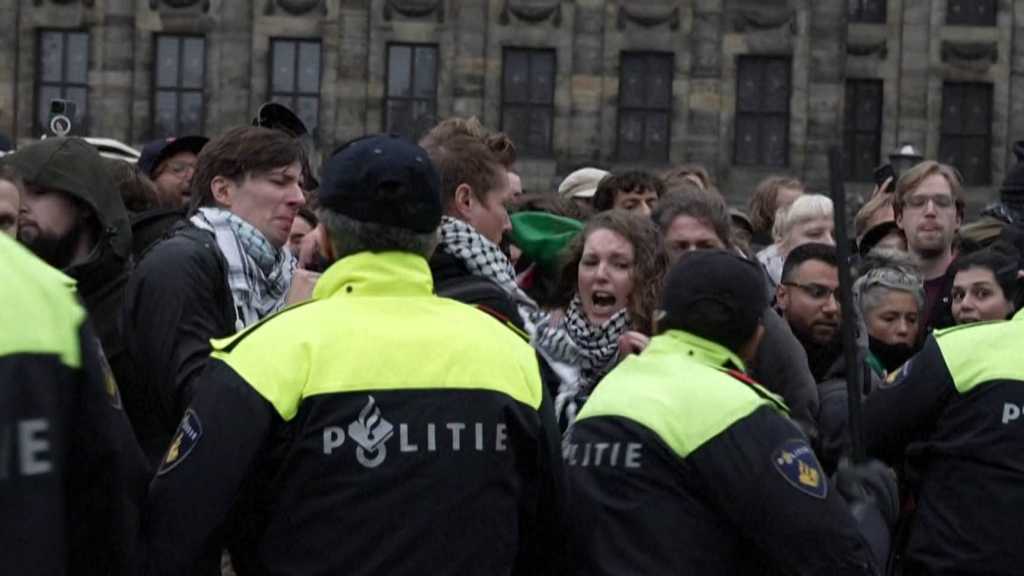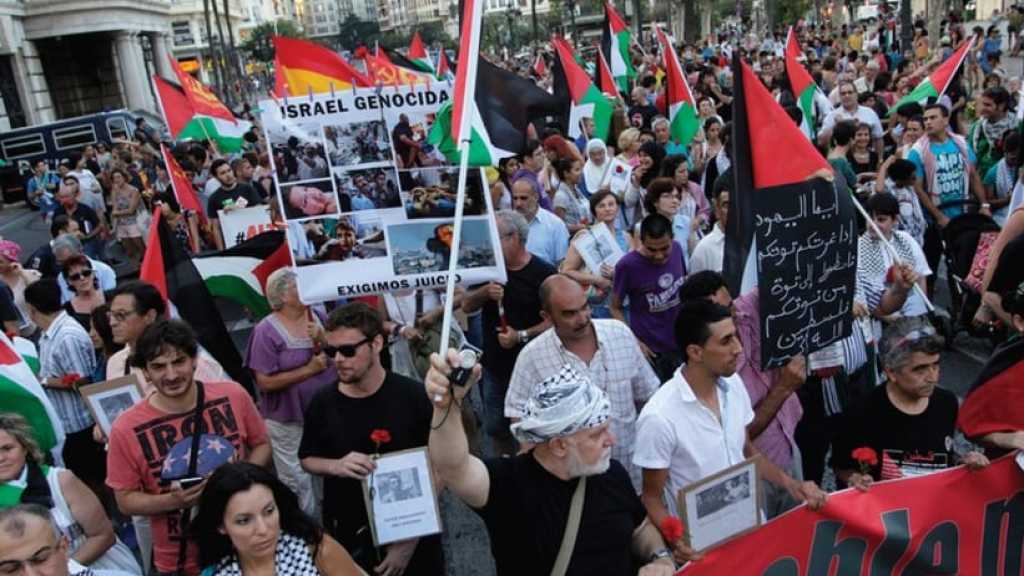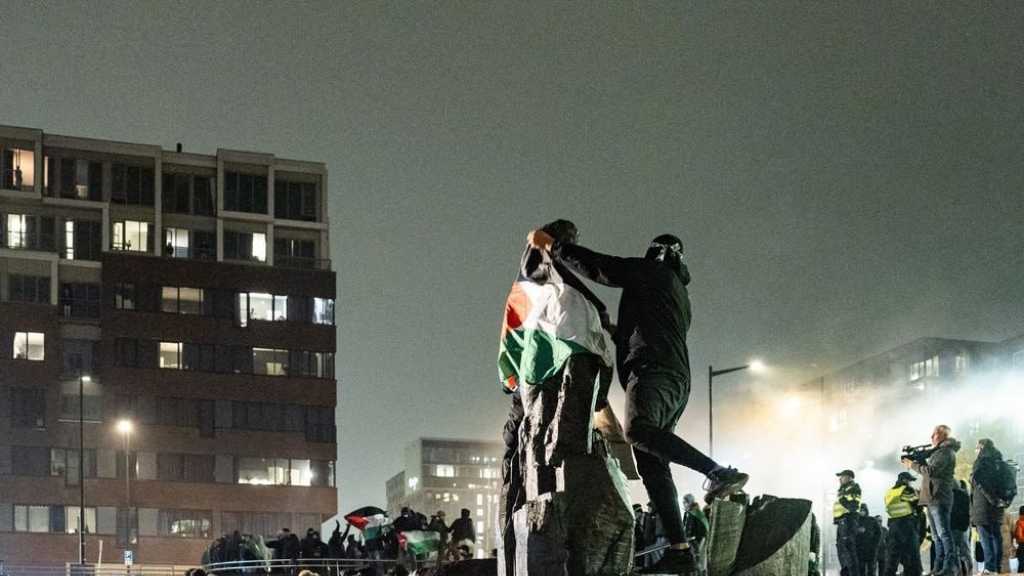Turkey: Emergency State Extended amid Protests over Disputed Poll, Analyst Warns of Manipulation
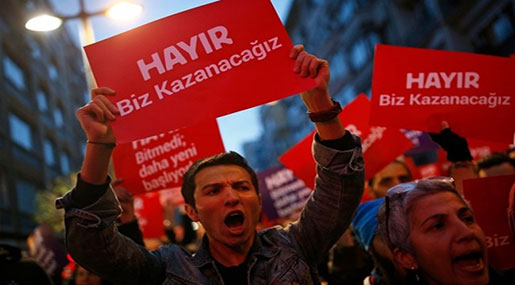
Local Editor
Turkey's cabinet extended a state of emergency in the country for another three months just one day after President Recep Tayyip Erdogan won a referendum extending his executive powers.
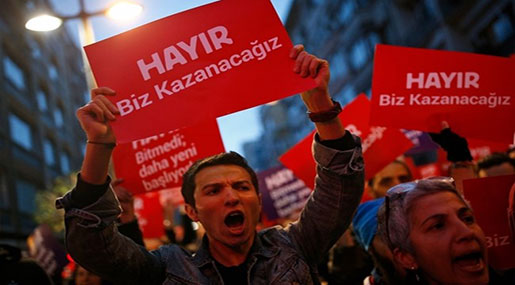
The state of emergency was initially imposed following a failed coup in the country on July 15. Since then, it has already been extended twice.
The decision for the third extension was made late on Monday, following a meeting of the National Security Council [MGK] chaired by Erdogan.
"The recommendation was considered and the Council of Ministers signed to extend the state of emergency for another three months from Wednesday," Deputy Prime Minister Numan Kurtulmus said.
Kurtulmus stressed that the extension was aimed at empowering the government to "fight against terrorist groups."
"In this struggle, whatever is necessary will be done."
Erdogan on Monday angrily rejected criticism by international monitors of a referendum granting him extra powers that was disputed by the opposition and exposed bitter divisions in the country.
Returning in triumph to his presidential palace in Ankara, Erdogan addressed thousands of supporters gathered outside, telling monitors who criticized the poll: "Know your place."
Showing no sign of pulling his punches, Erdogan said Turkey could hold further referendums on its EU bid and re-introducing the death penalty.
It was earlier on Sunday that the 'Yes' camp won 51.41 percent in the referendum, according to complete results released by election authorities.
On the other hand, thousands of supporters of the 'No' campaign in the referendum on granting Turkish President Recep Tayyip Erdogan greater powers took to the streets of Istanbul late Monday to protest alleged poll violations.
At least 1,000 protesters thronged Besiktas on the European side of the city while on the Asian side around 2,000 demonstrators marched through Kadikoy, another staunchly secular and anti-Erdogan neighborhood, AFP correspondents said.
The main opposition Republican People's Party [CHP] and the pro-Kurdish Peoples' Democratic Party [HDP] said they would challenge the results from most ballot boxes due to alleged violations.
There has been anger among 'No' supporters over last minute changes to the voting procedures but the authorities insist the referendum was conducted cleanly.
It was earlier on Sunday that the 'Yes' camp won 51.41 percent in the referendum, according to complete results released by election authorities.
Respectively, Austrian member of the Council of Europe observer mission, Alev Korun, told ORF radio Tuesday that up to 2.5 million votes could have been manipulated in Sunday's Turkish referendum which ended in a tight 'Yes' vote for greater presidential powers.
The mission of observers from the 47-member Council of Europe, the continent's leading human rights body, had already said the referendum was an uneven contest. Support for "Yes" dominated campaign coverage, and the arrests of journalists and closure of media outlets silenced other views, the monitors said.
But Korun said there were questions about the actual voting as well.
"This is about the fact that actually the law only allows official voting envelopes. The highest election authority decided however -- as it were, against the law -- that envelopes without official stamp should be admitted," she said.
Source: News Agencies, Edited by website team

